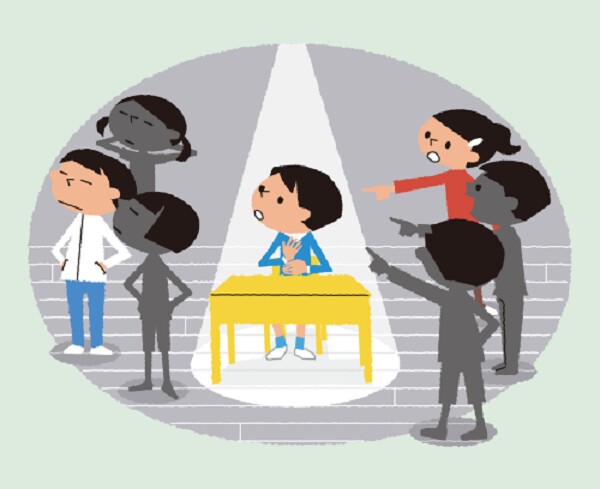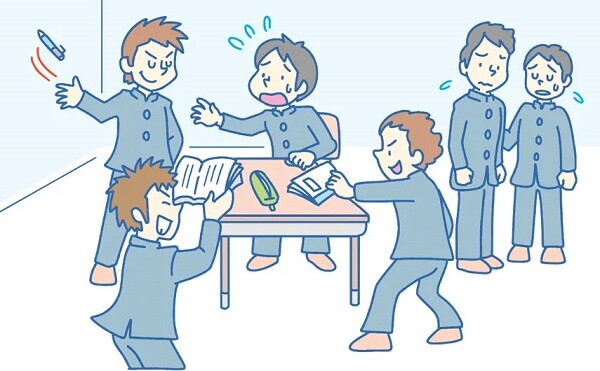Instead of solely focusing on preventing bullying, parents should aim to build a strong foundation that empowers their children to become confident, resilient individuals capable of navigating life’s challenges.

Strong, Independent Character
The beauty of a strong, independent character lies in the air of mystique and unpredictability it brings. This type of personality exudes a confident aura, sending a clear message: “I am not one to be messed with.”
Children with strong, independent characters often command attention and create a confident circle, making it less likely for bullies to target them. These children are more likely to stand their ground in the face of pressure and skillfully navigate bullying situations.
Instead of reacting with fear or passivity, they use their communication skills to assert themselves, engage in dialogue, or seek support from adults or peers.

Moreover, they tend to view situations from multiple perspectives, recognizing that bullying behavior is not a reflection of their self-worth but rather a manifestation of issues within the bully’s life. This understanding helps them avoid taking bullying incidents too personally and enables them to respond with a calmer mindset.
This strong character also fosters problem-solving skills. When faced with challenges, these children are more inclined to seek creative and effective solutions rather than simply avoiding the issue. This approach helps them overcome difficult situations and builds a foundation for future confidence.

Self-Assured Demeanor
In reality, a lack of self-assurance can make children more susceptible to becoming bullying targets. The school environment, where children spend a significant portion of their time, should be a place not only for learning but also for feeling safe and secure. However, when children don’t feel safe, they become easier targets for bullies.
Many children experience anxiety or fear when interacting with peers, teachers, or other adults. This lack of confidence can make them appear vulnerable and unable to stand up for themselves. When children don’t feel secure, they may resort to avoidance behaviors, which further increases their likelihood of becoming victims.

Furthermore, this lack of confidence can stem from various social factors. Children may witness or hear about bullying incidents from peers, on social media, or even from their own parents. These stories create a sense of unease and worry, leading children to perceive their surroundings as unfriendly. As a result, they may become more inclined to isolate themselves and less likely to open up to others.
Additionally, if children don’t receive adequate support from their families and schools in dealing with challenging situations, they may feel isolated and believe that no one is on their side.
Without proper guidance and support from adults, they will struggle to develop essential social skills, hindering their ability to protect themselves.

A Solid Circle of Friends
A positive circle of friends provides emotional support and creates a strong safety net for children facing pressure. When children feel surrounded by supportive peers, their confidence in social interactions increases.
Children with good friends tend to develop stronger social skills, including communication, collaboration, and conflict resolution. They learn to effectively express their emotions and needs, not only maintaining healthy friendships but also protecting themselves from bullying behaviors.
Moreover, a solid circle of friends helps children identify and address inappropriate behaviors from others. When one child in the group is bullied, their friends are more likely to intervene or, at the very least, not stand idly by. This not only provides support to the victim but also sends a clear message to the bully that their behavior is unacceptable.

A good circle of friends also instills positive values, such as empathy, respect, and mutual support. When children engage in positive activities together, they create fond memories and build lasting relationships. This sense of connection makes them feel like an integral part of the group, reducing feelings of loneliness and anxiety.
To foster a solid circle of friends for children, parents should encourage their participation in extracurricular activities, sports, or clubs. These experiences provide opportunities for children to meet new friends, practice social skills, and learn the value of teamwork.
Lastly, teaching children about the importance of honesty and respect in friendships is crucial. When children learn how to be a good friend, they develop the skills to seek out and maintain positive relationships.
A solid circle of friends not only helps shield children from bullying situations but also lays the foundation for their personal growth throughout life.
3 Types of Friends Parents Should Be Concerned About, Your Child Could Be Negatively Influenced
Your personality is shaped by the company you keep. If you spend time with positive and empowering individuals, you are more likely to develop a positive and empowering outlook on life. On the other hand, if you surround yourself with negative and toxic people, their energy can rub off on you and impact your own mindset. It is important to choose your friends wisely and ensure that they align with your values and goals. Remember, you become like the people you hang out with, so surround yourself with those who inspire and motivate you to be the best version of yourself.




































